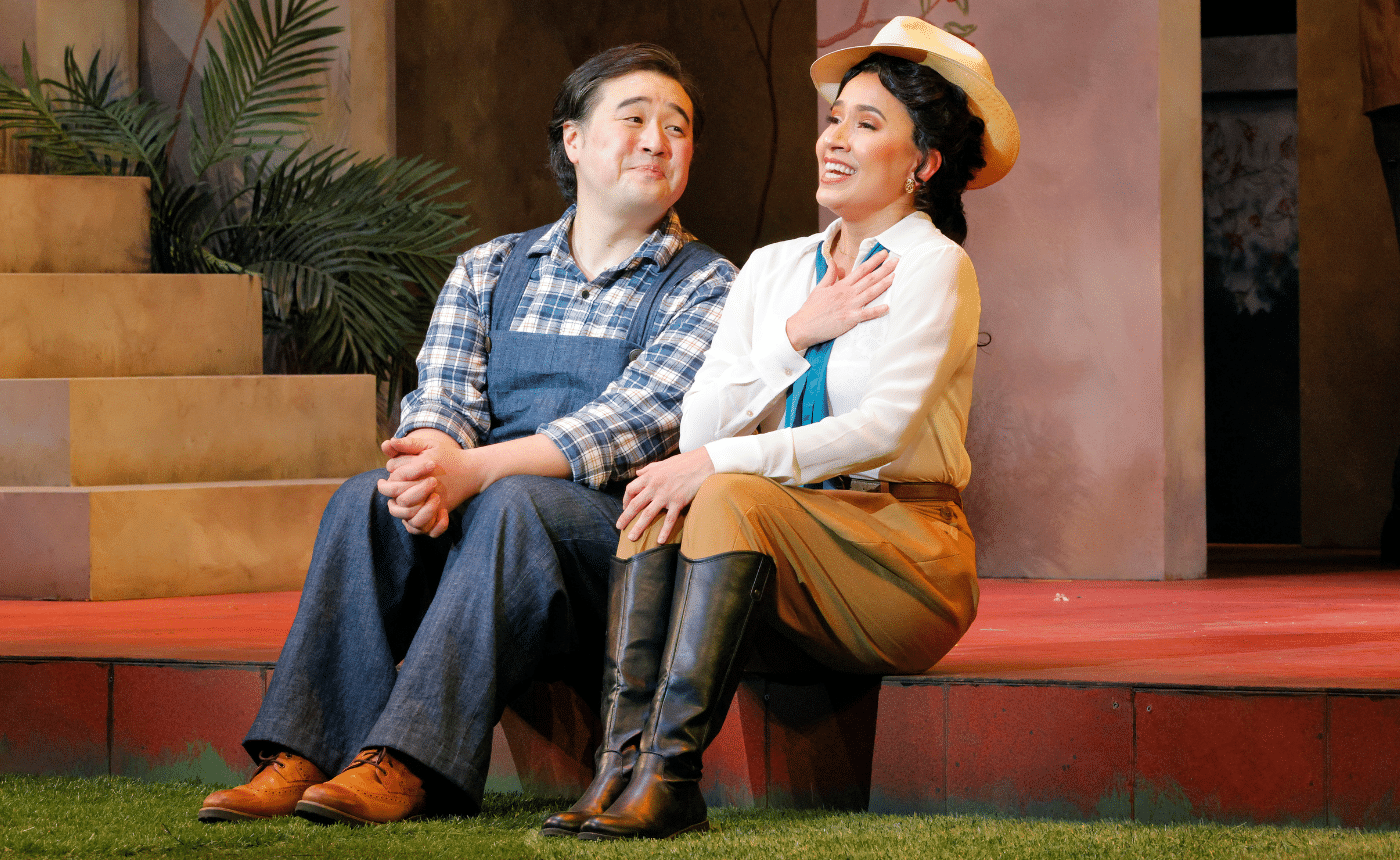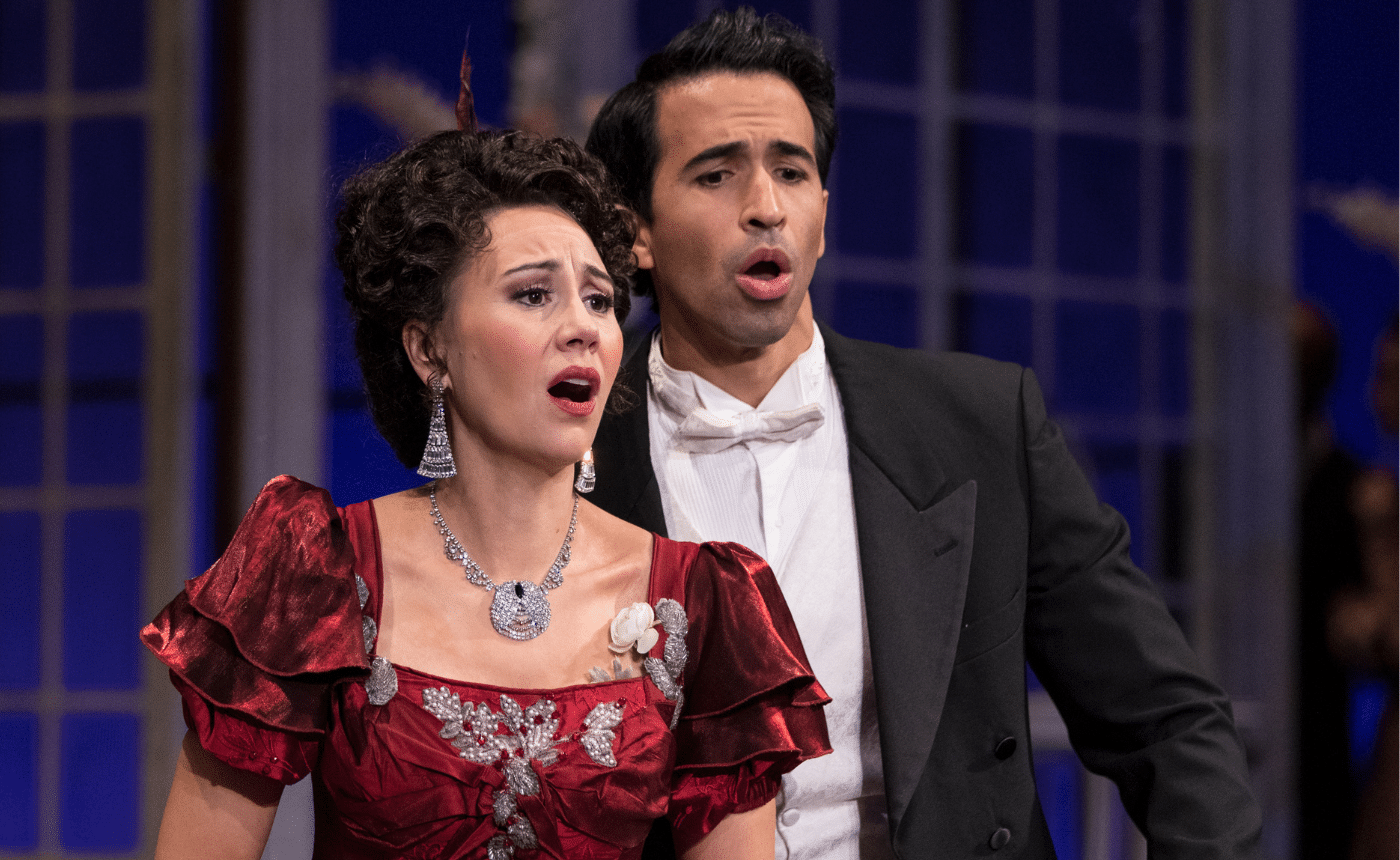Opera Etiquette 101
by Robert Bedont
When friends who aren’t used to opera come with me to a performance, they often ask if they need to behave in a particular way. I usually tell them to simply show up and listen to some great music and theatre. While it’s true that opera performances don’t have a dress code or secret password, there are some unspoken rules.
Audience etiquette has changed since the days of Handel, Mozart, and Beethoven. In this day and age, classical music performances have an expected reverence when entering the theatre. On the other hand, Mozart himself would have expected food, drink, gossip, and a rowdy 18th-century crowd! In fact, it was common place back in his day and the 19th century for a family to rent a box at the opera house for a whole season to play cards, conduct business, and just be seen in all of their finery. It was a social, noisy event.
Somewhere between then and now with Wagner insisting on attentive listening and the background silence of 20th-century recording studios, audience noise has come to be viewed as intrusive to the performers and patrons alike. But, how much should we really care about coughs, applause, and mobile phones?
I’m the last person to advocate stuffiness in the theatre. Judgemental looks and furrowed brows alienate those who are not familiar with the art form. While unnecessary noise or general disrespect for other opera-goers’ experiences is discouraged, our goal is to invite new opera lovers into the fold, not scare them away!
For those who are new to the opera experience, here are some of those unspoken rules—some insider tips to help you feel more at home in the theatre:
WHEN DO I CLAP?
Clapping is encouraged!
Opera is an emotional experience, and you should feel comfortable clapping at what moves you. Some opera productions might be intentionally unclear about when to clap (the composer or director may have wanted to create tension in the piece), but the performers love to hear that you appreciate their performance. If you’re in doubt, you can always wait until other audience members applaud.
WHAT ABOUT LAUGHING OR OTHER NOISES?
Did you know that opera can be funny? Many directors like to build in gags to the story! Some scenes are shocking in opera, others are sad, and some are happy. Don’t be surprised if you hear laughs or gasps come from the audience. And here’s an insider secret: the opera singers and musicians in the pit love hearing audience reactions!
WHAT SHOULD I WEAR?
As an audience member you can wear whatever is comfortable for you. Some people might feel comfortable in jeans, but others might feel more comfortable in an evening gown or tux. A good guide might be your personal dress code for dinner with friends. But you will probably see other audience members in everything from fancy dresses to a T-shirt and cowboy boots, so you can feel comfortable wearing anything in this range. Just be respectful of the people sitting around you and don’t wear something that might obstruct their sightline to the stage.
Want to show off your favorite formal dress? Wear it, all your fancy jewelry, and don’t forget your opera glasses. Just got off work and don’t have time to change? Come as you are whether that be business casual, scrubs, or a suit.
WHAT IF I DON’T KNOW A LOT ABOUT THE MUSIC?
We have you covered. Take advantage of any pre-performance activities. Most major opera companies will hold lectures before each performance. Dr. Carol Anderson is our principal opera coach, and provides information at her Opera Preludes lecture (held one hour before each performance for ticket holders) that will help you enjoy the performance even more. Topics range from the history of the composer or piece of music, to interesting anecdotes from the current or past performances of the pieces being played, and even information about the world-class opera singers. At Utah Opera we also offer a Q&A after each performance where Artistic Director Christopher McBeth and a few of the performers answer audience member questions.
Sometimes if you come early, you might get treated to a special experience! On opening night, we usually hire a photographer to take “red carpet” photos and there are sometimes other fun displays in the lobby to help you understand the opera better.
BUT WHAT IF I DON’T SPEAK THE LANGUAGE OF THE OPERA?
Don’t worry! We don’t always speak the language the opera is written in either! (After all, how many people speak fluent Czech or French?)
OKAY, BUT WHAT SHOULD I NOT DO?
We love it when our audience feels comfortable in the theatre, but there are some things you should keep in mind in order to respect your fellow audience members:
Eating, talking, and other careless noises are distracting to the performers and to the audience. Venues like the Janet Quinney Lawson Capitol Theatre are designed to have wonderful acoustics—it’s why it feels like the music is all around you. But the acoustics can’t discriminate between music and the sound of a candy wrapper. A good tip is to unwrap any cough drops, turn off your phone, and put your purse and coat under your chair before the performance starts.

Please silence your cell phones, alarms, and other audible electronic devices before the opera begins. But, feel free to check in before the concert or tweet a photo! Arts organizations love engaging with audience members on social media! Just remember to not disturb your seat neighbors during the performance. Phone screens give off more light than you’d think in a darkened theatre!
With all of this being said, perhaps there’s only really one rule: respect the people around you, relax, and enjoy some incredible theatre!









